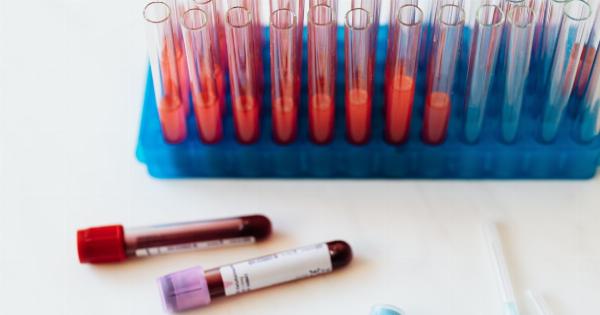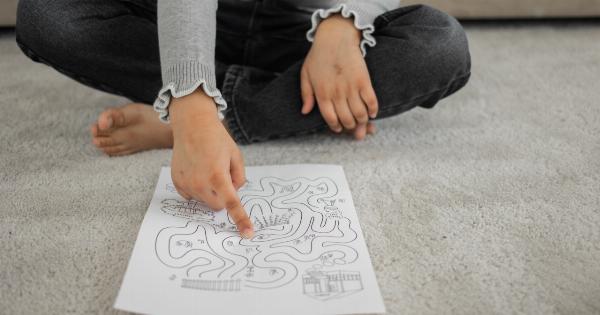Obsessive traits or tendencies can affect individuals in various ways and can have a significant impact on their daily lives.
While it is natural for everyone to experience some degree of obsessiveness from time to time, excessive or uncontrollable obsessions can lead to distress and impairment in functioning.
If you have ever wondered whether your behavior leans towards obsessiveness, this comprehensive diagnostic test will help you gain insights into your tendencies.
This assessment is designed to evaluate common obsessive traits and behaviors, enabling you to understand your patterns better. Please answer the following questions honestly to receive an accurate assessment of your tendencies.
Section 1: Thought Patterns
Having repetitive and intrusive thoughts is a characteristic feature of obsessive tendencies. This section will assess your thought patterns and help identify if you exhibit obsessive traits in this area.
1. Do you often have unwanted thoughts that intrude into your mind?
a) Yes
b) Sometimes
c) Rarely
d) No.
2. Do you find it difficult to control or dismiss these unwanted thoughts?
a) Yes
b) Sometimes
c) Rarely
d) No.
Section 2: Compulsive Behaviors
Compulsive behaviors are repetitive actions or rituals that individuals feel compelled to perform to alleviate anxiety or distress. This section will assess your engagement in such behaviors and evaluate if you exhibit compulsive tendencies.
3. Do you engage in repetitive actions (e.g., counting, tapping, hand washing) as a means to reduce anxiety?
a) Yes
b) Sometimes
c) Rarely
d) No.
4. Are these repetitive actions time-consuming and interfere with your daily life?
a) Yes
b) Sometimes
c) Rarely
d) No.
Section 3: Preoccupation
Preoccupation is a core aspect of obsessive traits, as individuals often find themselves excessively focused on specific thoughts or ideas.
This section will assess your level of preoccupation and determine if you exhibit obsessive tendencies in this aspect.
5. Do you find it difficult to shift your attention away from specific thoughts or ideas?
a) Yes
b) Sometimes
c) Rarely
d) No.
6. Are you excessively concerned with order, symmetry, or exactness?
a) Yes
b) Sometimes
c) Rarely
d) No.
Section 4: Anxiety and Distress
Anxiety and distress commonly accompany obsessive tendencies. This section will assess the intensity of these emotions in your life and help determine if you exhibit obsessive traits related to anxiety and distress.
7. Do you experience intense anxiety when things are not organized or out of place?
a) Yes
b) Sometimes
c) Rarely
d) No.
8. Does your obsessive behavior cause significant distress in your life?
a) Yes
b) Sometimes
c) Rarely
d) No.
Section 5: Interference with Daily Life
Obsessive tendencies can interfere with various aspects of an individual’s daily life, affecting personal relationships, work performance, and overall well-being.
This section will evaluate the degree to which obsessive traits impact your daily functioning.
9. Has your obsessive behavior negatively affected your personal relationships or social life?
a) Yes
b) Sometimes
c) Rarely
d) No.
10. Has your obsession interfered with your ability to concentrate on important tasks or responsibilities?
a) Yes
b) Sometimes
c) Rarely
d) No.
Thank you for completing the diagnostic test! To receive your results, please add up your responses for each question and refer to the scoring guide below:.
Scoring Guide:.
– For Questions 1, 2, 3, 4, 5, 6, 7, 8, 9, and 10: Assign 4 points for each “Yes,” 3 points for each “Sometimes,” 2 points for each “Rarely,” and 1 point for each “No.”.
Results:.
30-40 points: High Likelihood of Obsessive Traits
Based on your responses, it is highly likely that you exhibit obsessive traits.
These tendencies may significantly impact your daily life, causing distress and interfering with various aspects of functioning. Consider seeking professional help to manage these tendencies effectively.
20-29 points: Moderate Likelihood of Obsessive Traits
Your scores indicate a moderate likelihood of exhibiting obsessive traits.
While your tendencies may not be severe, they might still interfere with some areas of your life and cause occasional distress. It could be beneficial to explore strategies to minimize their impact on your well-being.
10-19 points: Mild Likelihood of Obsessive Traits
Your responses suggest a mild likelihood of having obsessive traits.
While your tendencies might not significantly affect your daily functioning, it is still important to remain mindful of any distress or interference they may cause. Continue to self-monitor and develop healthy coping mechanisms.
1-9 points: Low Likelihood of Obsessive Traits
Your scores indicate a low likelihood of exhibiting obsessive traits. It is unlikely that your behavior is indicative of obsessive tendencies.
However, if you experience any concerns or difficulties in the future, it is essential to seek appropriate support.


























